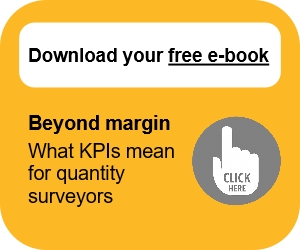Contract sum
The contract sum is the price agreed with the contractor and entered into the contract. The agreed contract sum should be calculated and checked very carefully as errors are deemed to have been accepted by both parties.
However, the contract sum does not constitute a 'fixed price' even if the contract is described as a fixed price contract, a lump sum contract or a guaranteed maximum price contract. A truly fixed price would actually not be in the interests of the client as it would mean they could not make changes to the works, and would require that the contractor price risks over which they may have no control, and which might not arise.
As a result, contracts generally allow for the contract sum to be adjusted, for example:
- Variations.
- Fluctuations.
- Prime cost sums.
- Provisional sums.
- Payments to nominated sub-contractors or nominated suppliers.
- Statutory fees.
- Payments relating to opening up works for inspection and testing.
- Loss and expense.
When the contract sum is adjusted, this adjustment should be taken into account in the valuation of subsequent interim certificates.
Preparing the final account is the process of calculating and agreeing any adjustments to the contract sum at the end of the defects liability period so that the amount of the final payment to the contractor can be determined. The amount of the final payment is then set out in the final certificate (or final statement).
NB: It is possible for the final certificate to show that money is owed to the client, rather than due to the contractor.
Construction contracts may in fact not require the preparation of a final account, although they generally do require the contractor to provide all documents necessary for the adjustment of the contract sum within a specified time, and set out the time scale for, and consequences of, issuing the final certificate.
On contracts such as measurement contracts, the contract sum may not be known when the contract is entered into, but instead is calculated as the works progress based on some agreed method of measurement.
[edit] Related articles on Designing Buildings Wiki
- Accounting.
- Base date.
- Construction contract.
- Contract sum analysis.
- Difference between lump sum and measurement contracts.
- Escalation.
- Final account.
- Final certificate.
- Fluctuations.
- Hard costs v soft costs.
- Interim certificates.
- Opening up works for inspection and testing.
- Outturn cost.
- Payment schedule.
- Provisional sums.
- Right to payment.
- The difference between a prime cost and provisional sum.
- Variations.
- What is a final account.
[edit] External references
- JCT: Deciding on the appropriate JCT contract.
Featured articles and news
Moisture, fire safety and emerging trends in living walls
How wet is your wall?
Current policy explained and newly published consultation by the UK and Welsh Governments.
British architecture 1919–39. Book review.
Conservation of listed prefabs in Moseley.
Energy industry calls for urgent reform.
Heritage staff wellbeing at work survey.
A five minute introduction.
50th Golden anniversary ECA Edmundson apprentice award
Showcasing the very best electrotechnical and engineering services for half a century.
Welsh government consults on HRBs and reg changes
Seeking feedback on a new regulatory regime and a broad range of issues.
CIOB Client Guide (2nd edition) March 2025
Free download covering statutory dutyholder roles under the Building Safety Act and much more.
AI and automation in 3D modelling and spatial design
Can almost half of design development tasks be automated?
Minister quizzed, as responsibility transfers to MHCLG and BSR publishes new building control guidance.
UK environmental regulations reform 2025
Amid wider new approaches to ensure regulators and regulation support growth.
The maintenance challenge of tenements.
BSRIA Statutory Compliance Inspection Checklist
BG80/2025 now significantly updated to include requirements related to important changes in legislation.
Shortlist for the 2025 Roofscape Design Awards
Talent and innovation showcase announcement from the trussed rafter industry.
OpenUSD possibilities: Look before you leap
Being ready for the OpenUSD solutions set to transform architecture and design.
Global Asbestos Awareness Week 2025
Highlighting the continuing threat to trades persons.
Retrofit of Buildings, a CIOB Technical Publication
Now available in Arabic and Chinese as well as English.


























